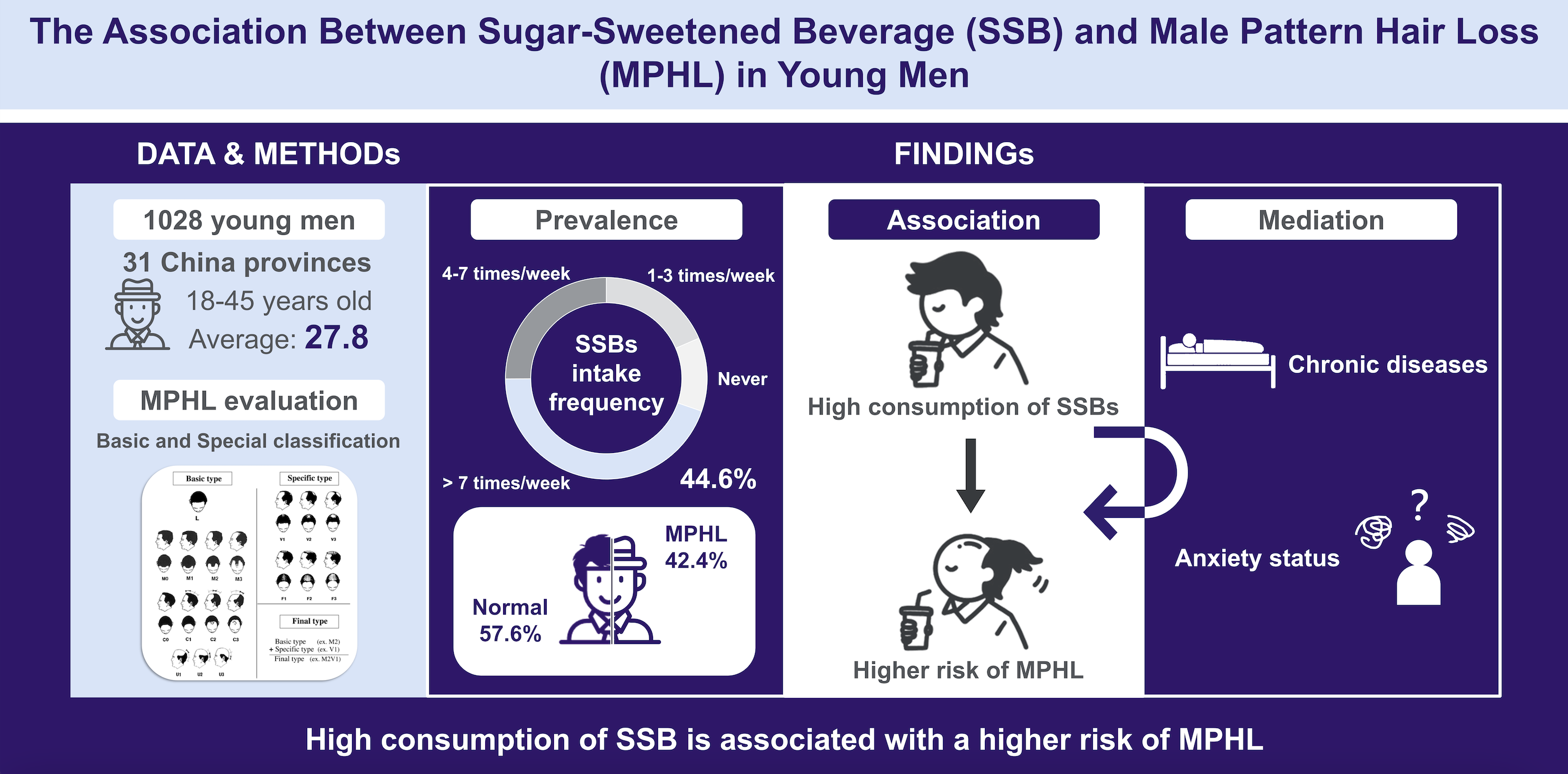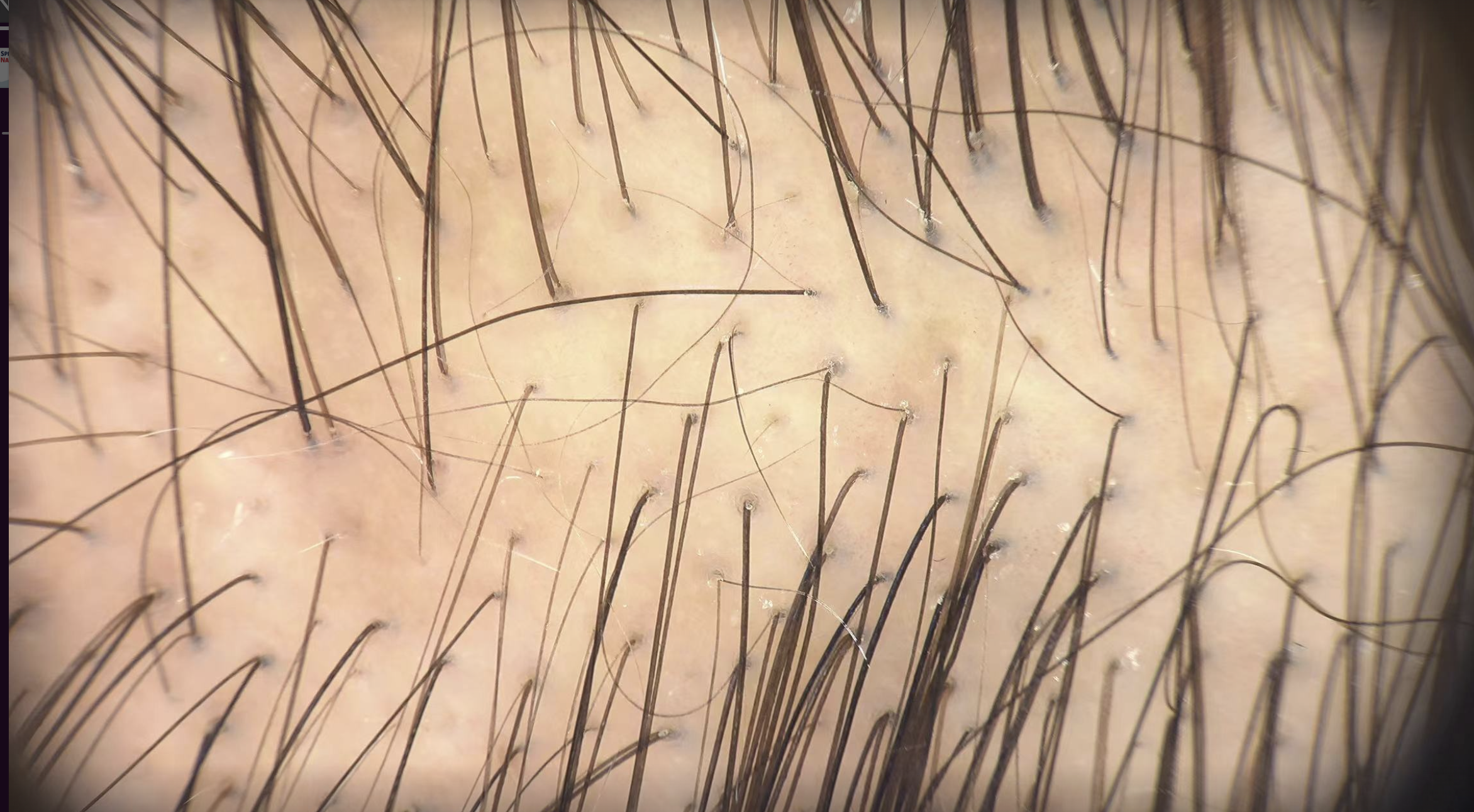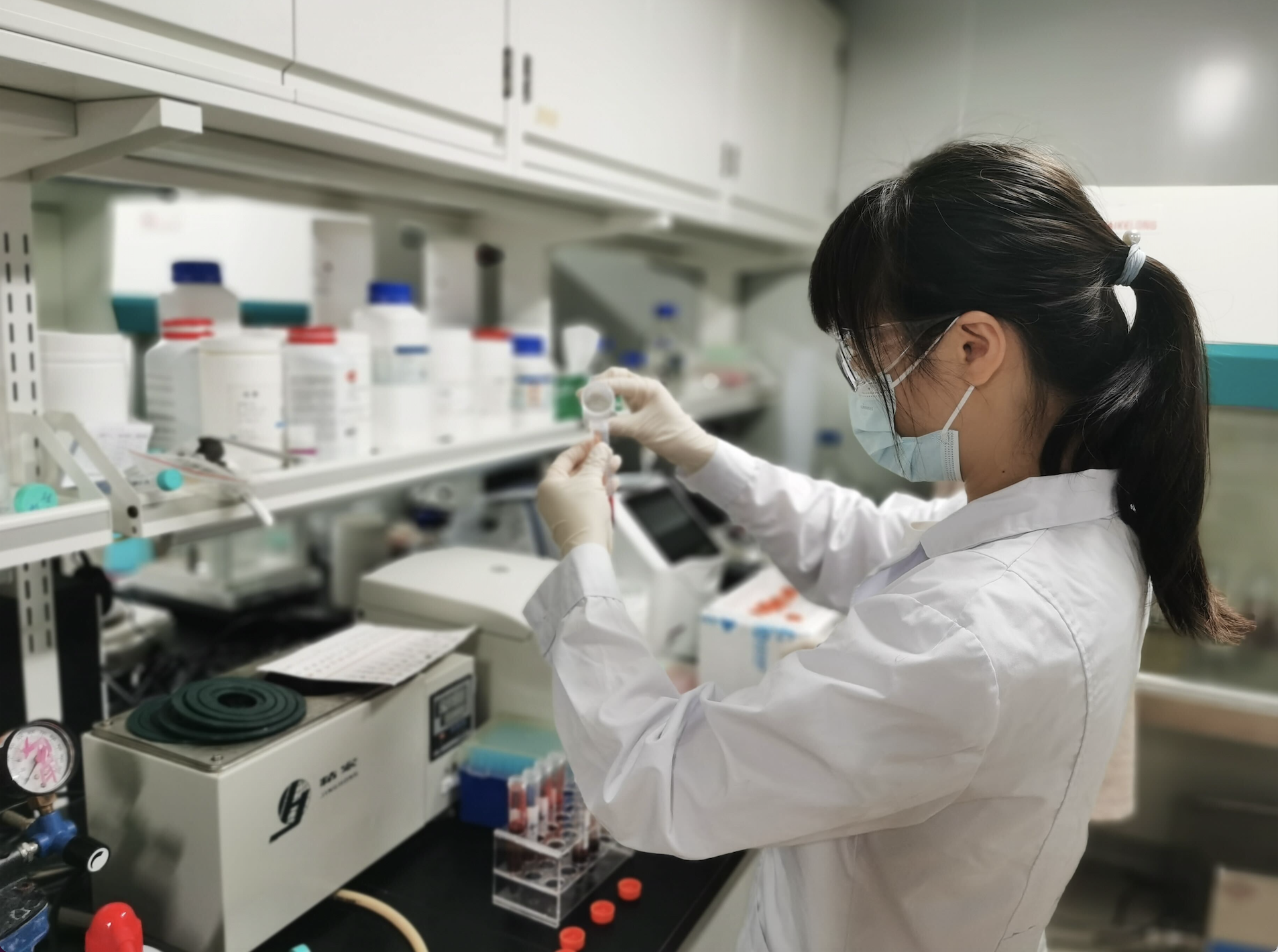A surprising survey result supports evidence from mice that a metabolic pathway involving glucose can damage the roots of hair follicles.
A recent survey study from scientists at Tsinghua University suggests that drinking large volumes of sugary drinks increased the likelihood of male pattern hair loss1 more than threefold, but this finding requires more investigation.

A survey of 1028 men aged 18-45 suggests that those who drank sugary drinks more than seven times were 3.36 times more likely to suffer from male pattern hair loss.
Male pattern hair loss is a common, progressive form of hair loss that affects up to 15% of men aged 18-29 and up to 50% of men aged 40-49. It has been linked to numerous factors, including hormones, genetics and diet.
The study, led by Ai Zhao, an expert in nutrition epidemiology at the Vanke School of Public Health, surveyed 1,028 respondents. It found that men aged 18-45 years old who consumed beverages such as juice with added sugar, energy drinks, sweet milk, and sweet tea or coffee more than seven times a week were 3.36 times more likely to have male pattern hair loss than men who didn’t consume them. The findings were recently published in the journal Nutrients.
Zhao says that while her team controlled for socio-economic status, diet, lifestyle and other factors, it is still hard to draw firm conclusions from the results. The study also relied on self-reported data, rather than clinical examinations in a controlled environment, which opens the possibility of misreporting by respondents, and other bias, says Zhao.
 A recent Tsinghua University survey study suggests that a high level of sugary drink consumption is associated with a more than tripled risk of male pattern hair loss.
A recent Tsinghua University survey study suggests that a high level of sugary drink consumption is associated with a more than tripled risk of male pattern hair loss.
Mouse mechanism
Nonetheless, a potential mechanism between sugar consumption and hair loss has previously been identified in mice2, 3, 4, 5. “Several animal studies provided evidence that excessive sugar beverage intake might impair sugar metabolism at the root of the hair,” Zhao explains.
The process involved is the polyol pathway, a metabolic route for converting excess glucose into fructose, and finally fatty acids. This inhibits the energy supply to keratinocyte cells on the outer hair root, which are essential to hair follicle repair.
As yet, this biological mechanism is just a hypothesis taken from the results of several animal experiments2, 3, 4, 5, and the exact molecular mechanism needs further study to confirm, says Zhao.
Young people and sugar
Her team now plans to explore the association between sugar and hair loss in a much larger population using cohort studies and randomized controlled trials.
Zhao adds that research in China has already reported that sugary drink consumption is highest in the 13-29-year-old age group, with more than 22% drinking sugar-sweetened beverages.
“Chronic diseases and deaths seem so vague and distant for young people that they may be unwilling to give up sugary drinks for the sake of long-term health goals,” says Zhao, who hopes her research will have an impact.

Ai Zhao leads a team at the Vanke School of Public Health at Tsinghua University that study how diet is related to health and disease.
As studies build to show the many different ways in which a high sugar diet can negatively impact health, Zhao hopes people will avoid excessively sweetened beverages. “Reducing sweet drink consumption has become a thorny problem, puzzling governments and health institutions around the world,” write Zhao and her co-authors.
References
1. Shi, X., Tuan, H., Na, X., Yang, H., Yang, Y. et al. The Association between Sugar-Sweetened Beverages and Male Pattern Hair Loss in Young Men Nutrients 15(1), 214 (2023) doi: 10.3390/nu15010214
2. Johnson, R.J., Sánchez-Lozada, L.G., Andrews, P. & Lanaspa, M., A Perspective: A Historical and Scientific Perspective of Sugar and Its Relation with Obesity and Diabetes Adv. Nutr. 8(3), 412-422 (2017) doi: 10.3945/an.116.014654
3. Hwang, Y.C., Sato, S., Tsai, J-Y., Yan, S., Bakr, S. et al. Aldose reductase activation is a key component of myocardial response to ischemia The FASEB Journal 16(2), 243-5 (2002) doi: 10.1096/fj.01-0368fje
4. Figlak, K., Paus, R., Williams, G. & Philpott, M. Outer root sheath is able to synthesise glycogen from lactate-investigating glycogen metabolism in human hair follicles J. Investig. Dermatol. 139(9), S317 (2019) doi: 10.1016/j.jid.2019.07.601
5. Macongonde, E.A., Vilela, T. C., Scaini, S., Gonçalves, C.L. et al. Evaluation of the in vivo and in vitro effects of fructose on respiratory chain complexes in tissues of young rats Disease Markers 312530 (2015) doi: 10.1155/2015/312530
Editor: Guo Lili

